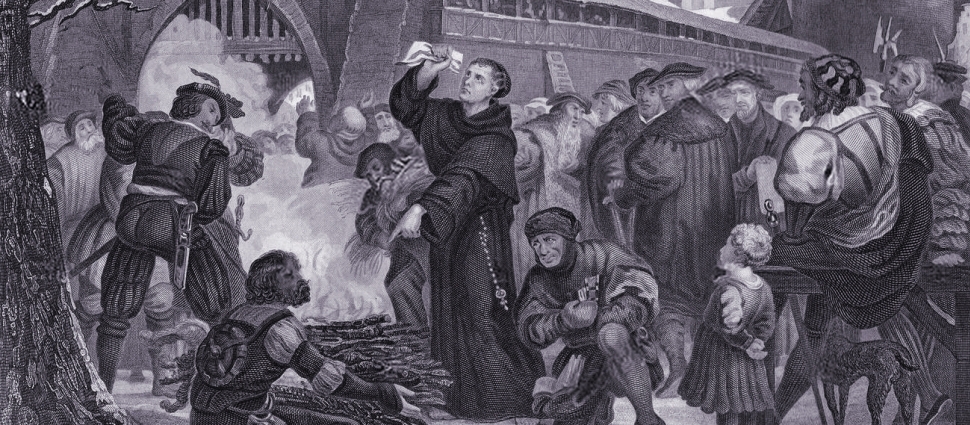Monday, April 13, 2020

1 Peter 4:1-6
“Since therefore Christ suffered in the flesh, arm yourselves with the same way of thinking, for whoever has suffered in the flesh has ceased from sin, so as to live for the rest of the time in the flesh no longer for human passions but for the will of God. For the time that is past suffices for doing what the Gentiles want to do, living in sensuality, passions, drunkenness, orgies, drinking parties, and lawless idolatry. With respect to this they are surprised when you do not join them in the same flood of debauchery, and they malign you; but they will give account to him who is ready to judge the living and the dead. For this is why the gospel was preached even to those who are dead, that though judged in the flesh the way people are, they might live in the spirit the way God does.”
In his first epistle the Apostle Peter seeks to instruct his readers concerning their identity in Christ so that they may live faithfully in a world in which they ultimately do not belong.
In the chapter 3 Peter explains that suffering – even to the point of death – is not a sign of weakness or failure: “But even if you should suffer for righteousness' sake, you will be blessed. Have no fear of them, nor be troubled” (3:14). Now he encourages his readers to arm themselves with the same attitude or way of thinking as that of Jesus. Specifically, believers must arm themselves with the mind of Christ in terms of how they understand their various sufferings.
“Since therefore Christ suffered in the flesh, arm yourselves with the same way of thinking, for whoever has suffered in the flesh has ceased from sin.” (vs. 1)
Referring back to the previous section, Peter mentions the suffering of Christ for the sake of sinners: “For Christ also suffered once for sins, the righteous for the unrighteous, that he might bring us to God, being put to death in the flesh but made alive in the spirit…” (3:18). Now he points out that Christ’s suffering includes both its central redemptive concern (covering the sins of God’s people) and a pattern of living for those who are saved.
The military language in verse 1 (“arm yourselves”) indicates that courage and grit are needed for the Christian life. This is particularly true in light of the various sufferings that will come our way for the sake of Christ.
Peter is not stating that physical suffering is a mystical pathway to sinless perfection (“for whoever has suffered in the flesh has ceased from sin”). His meaning is quite simple: When Christians, armed with the mind of Christ, become willing to suffer for the sake of righteousness they demonstrate that sin no longer rules them. So the clause “ceased from sin” is to be understood in terms of resolve. A willingness to suffer for faithfulness to Christ demonstrates that sin’s ruling power has been broken.
Suffering is not the goal of the Christian life nor is it something that should be sought after. However, anyone desiring to follow Christ in this sinful world will suffer from one degree to another. Therefore, suffering, while not the goal of the Christian life will often serve as an indication that one is pursuing holiness and righteousness and truth.
“With respect to this they are surprised when you do not join them in the same flood of debauchery, and they malign you.” (vs. 4)
Christians who are willing to suffer loss for the sake of Christ have gone to war against sin. They have, in essence, declared that they are through with sin. And because of this they stand apart from the world. Their fight against sin makes them stand out to the point that they become objects of derision.
As one New Testament scholar puts it:
These attitudes toward contemporary Roman customs and morals, combined with the Christian’s refusal to burn incense to the emperor – a gesture of civic gratitude intended to assure the well-being of the empire – earned Christians the reputation of being haters of humanity and traitors to the Roman way of life.
“But they will give account to him who is ready to judge the living and the dead.” (vs. 5)
The holiness of Christians serves as an indictment against the very ones who malign them. God is just and not even death can change his vindication of the righteous who heard and believed the gospel during their lives. This is the meaning of verse 6: “For this is why the gospel was preached even to those who are dead, that though judged in the flesh the way people are, they might live in the spirit the way God does.” This is not about postmortem conversion. The Apostle is referring to those who heard the gospel proclaimed and believed during their life but are now dead. The opponents of Christianity would point to the deaths of Christians as an indication of failure or defeat (“They die like everyone else!”). But Peter’s point is that even though they are “judged in the flesh” like everyone else (i.e. they died) they have received an eternal reward of life in the presence of God which began the moment they died.
Of these verses John Calvin wrote:
“We see…that death does not hinder Christ from being always our defender. It is a remarkable consolation to the godly that death itself brings no loss to their salvation.”




